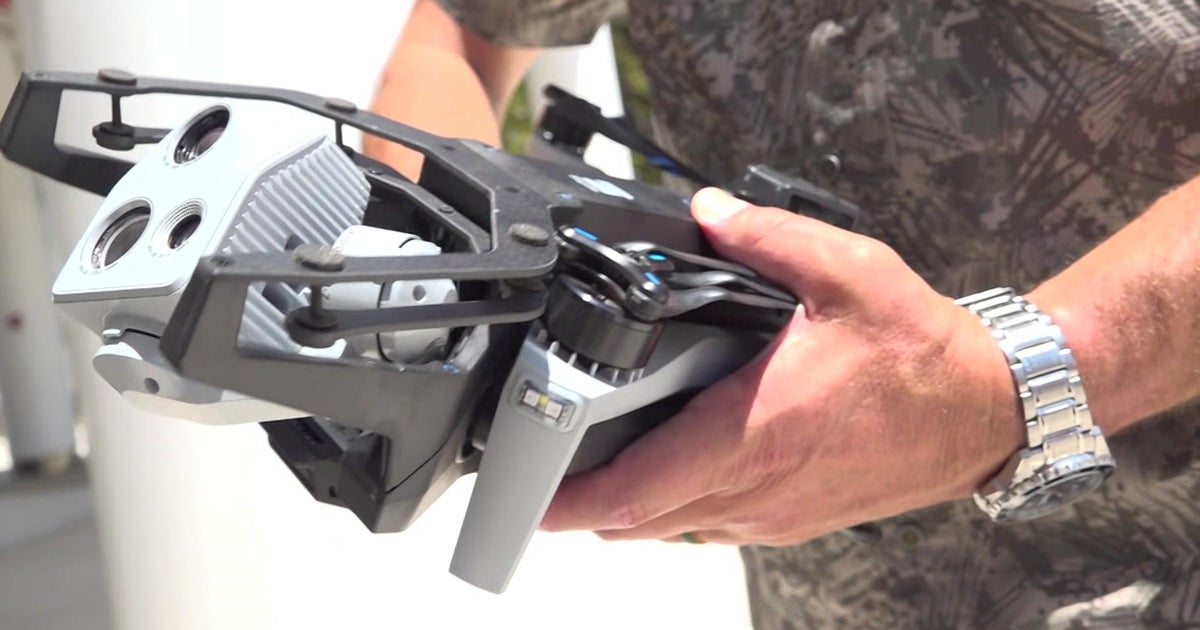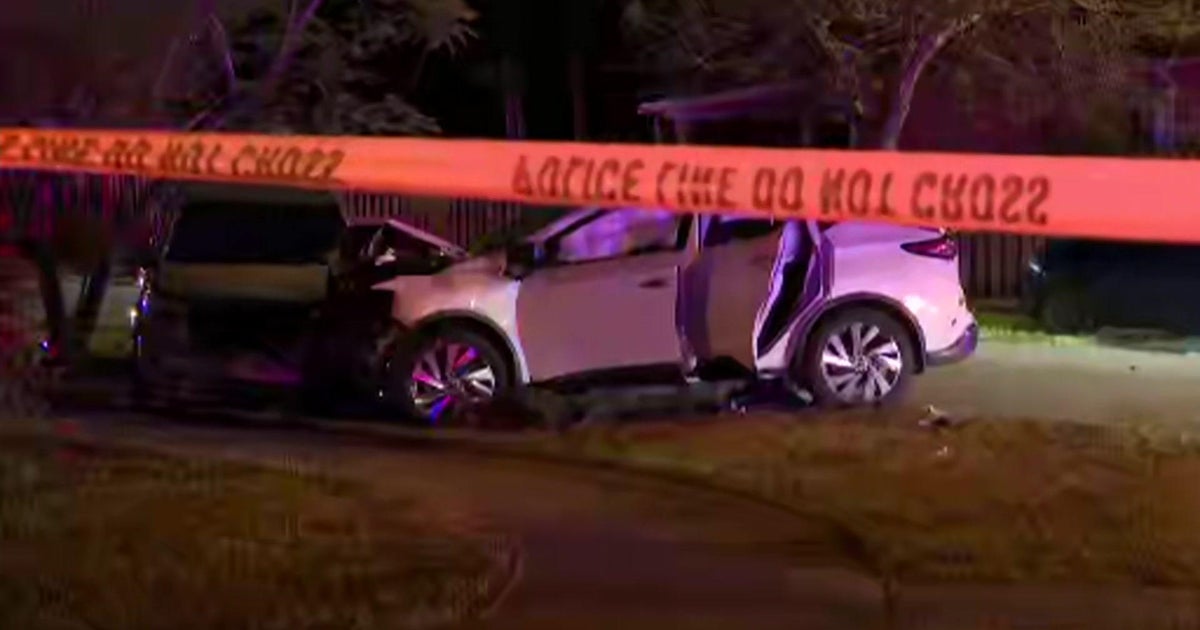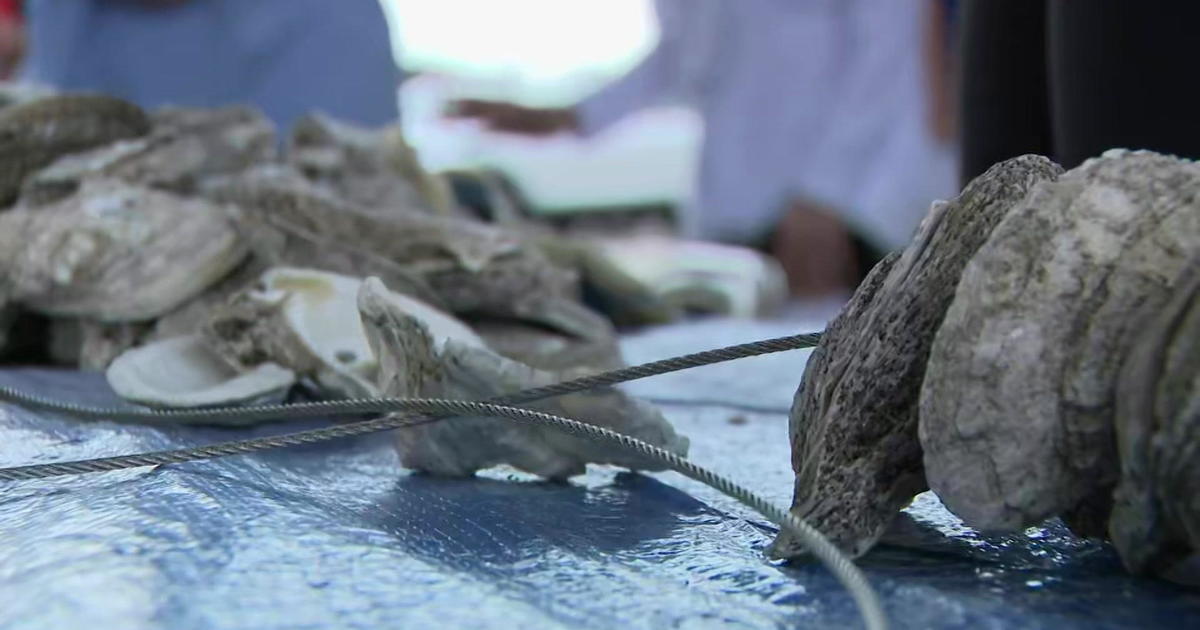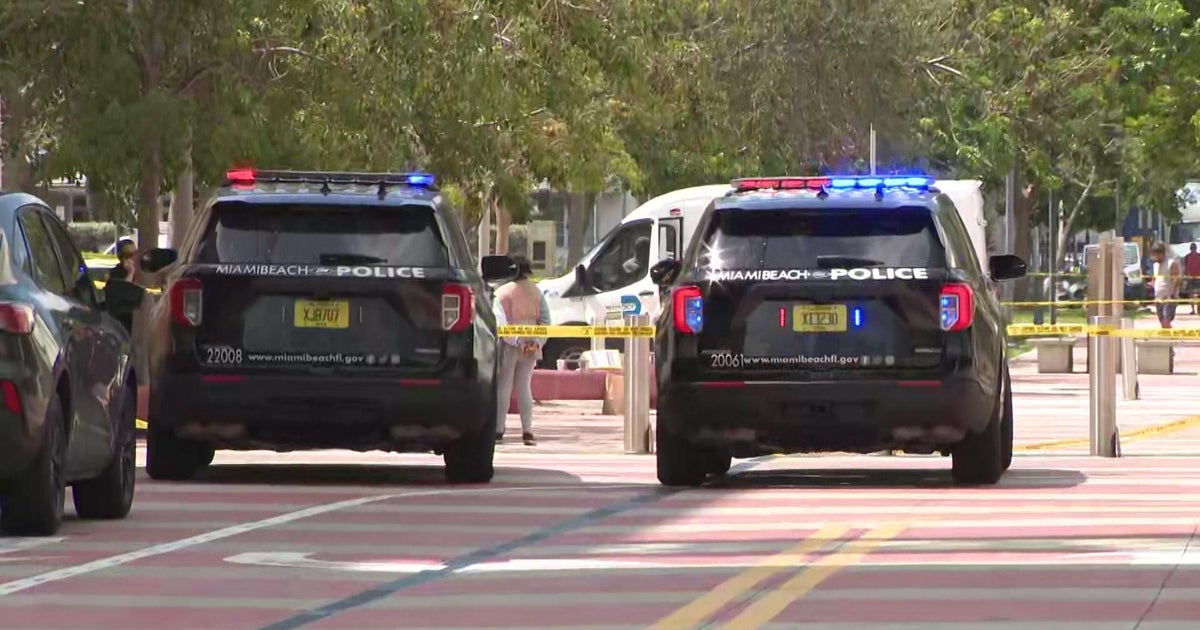I-Team: Medicare Fraud, The New Cocaine Cowboys
South Florida, once known as the illegal drug capital of the country has now earned another dubious distinction among those fighting crime. A distinction for a quieter, less violent crime, but one that's become just as costly as the drug trade.
We're talking about Medicare fraud.
The federal government says Medicare fraud now costs American taxpayer $60 Billion every year in stolen money. That's $200 for every man, woman and child in America.
And, federal investigators say, South Florida is at the center of it all.
From outdoor dominos to rolled cigars, from exotic cuisine to extra strong coffee, all found along just about any street you look.
Miami's Little Havana has become known nationally as the center of Cuban politics and culture in the United States.
But it's quickly becoming known for something else: Medicare Fraud.
Billions of your tax dollars are stolen every year here.
And federal investigators say that Little Havana and other areas around Miami-Dade County have become the Medicare fraud capital of the world.
"We were the king of the drugs in the '80s," said FBI agent Brian Waterman. "We're king of healthcare fraud in the '90s and the 2000's."
The FBI Special Agent Waterman leads South Florida's special Medicare fraud strike force.
Waterman says that what was once the center of the country's drug trade has now become the epicenter of Medicare fraud.
EASY CRIME
"It's a crime that's just too easy to do right now," said Waterman.
CBS4 I-Team investigator Stephen Stock asked "How easy is it?"
"I'm talking about renting some space ten feet by ten feet you a couple of cabinets and couple of shelves, a desk maybe a computer maybe not get yourself an occupational license you apply to Medicare and you get a couple of other documents and you're in business," said Waterman.
"We're talking millions of dollars in a month (stolen)," said the FBI agent.
There are dozens of medical clinics, medical suppliers and pharmacies much like the one at 8350 Bird Road, which is now closed, where you can see the stencils from the sign still in the window.
The feds estimate that dozens of these problematic clinics located in just a ten block area between Bird Road and Coral Way are responsible for filing hundreds of Millions of dollars in fraudulent Medicare claims last year.
And federal investigators say there are several similar ten block areas all over Miami-Dade County.
Just between January, 2009, and August, 2009, federal sources say those dozens of clinics located in ten block areas all around Miami-Dade billed Medicare a total of $1,558,700,529 just for HIV-infusion treatments. Claims the federal investigators say were fraudulent.
They say that estimates that South Florida alone is responsible for 4 Billion dollars in Medicare fraud claims may actually be low.
FBI agent Brian Waterman put it in perspective.
"I'm talking literally a piece of paper with 30, 50 100 names on it with (four other pieces of information on it). That's all the information you need, as long as they are legitimate Medicare patient (information), to bill Medicare," said Waterman.
I-Team investigator Stephen Stock asked "To commit this fraud?"
"To commit the fraud," said FBI agent Waterman.
UNDERCOVER VIDEO OF THE SCHEME
How exactly does all this work? You can see first-hand by watching undercover videotape shot by the CBS4 I-Team.
Within minutes of meeting a local medical center's office manager is talking money with our photographer.
"You have a way to get these people?" the unidentified medical office manager asks in Spanish. On the videotape the office manager is talking to a CBS4's photographer who has a list of Medicare patients.
The woman talking in Spanish is the office manager at a local medical clinic that is still in business in Miami-Dade.
In Spanish the manager tells the undercover photographer "For me to send a person to a rehabilitation center they give me $800 per person."
"In reality we get 800 and I get half and you get half," she tells the CBS4 photographer on the tape.
In other words, she's telling him that she'll split $200 with him for each Medicare patient he brings in.
And she tells him that all the clinic will do for the patients is give them an X-ray even though they are all HIV positive. But she says she will bill Medicare for much more.
"And you can sell those people (lists to other clinics) and then in three months they can come back (and we can Medicare again)," she tells the CBS4 photographer on the videotape.
The unidentified photographer then replies in English to make clear "In one month, $800 for the patient, you get $100, me get $100? Okay."
Investigators say after these clinics pay for these lists of numbers they then bill Medicare tens of thousands of dollars for drugs, medical equipment and supplies that aren't needed and in most cases never even delivered.
"I'll give you a thousand," said the same office manager on another occasion.
"A thousand?" the patient with the undercover camera asks.
"Yea. One thousand," said the office manager.
That's right. On another occasion, the same office manager at the same medical office offers another person, an HIV positive patient, $1,000 just for the patient to sign up on a sheet of paper. That way the clinic can use the patient's Medicare number to bill Medicare.
I-Team investigator Stephen Stock asked federal investigators about the ease with which this exchange took place.
"Does that surprise you?" investigator Stock asked.
"No," said FBI agent and strike force leader Brian Waterman. "It (the lists and names) won't be used by just one company that name will be sold to the next company and the next company and the next pharmacy."
"All fraudulently?" Stock asked.
"All fraudulent," said FBI agent Waterman.
Special agent Omar Perez agreed.
"Here, (in South Florida) it's blatant its right out fraud," Perez said.
Perez is a special agent for the US Department's of Health and Human Services' Office of Inspector General's Office of Investigations.
"It's easy!" said Perez of Medicare fraud. "It's easy pickings. There's no need to even attempt to create some paperwork."
Perez also serves on the special federal Medicare fraud strike force with FBI agent Brian Waterman and others.
The strike force operates out of a non-descript warehouse that is stacked to the ceiling with evidence and case files devoted exclusively to Medicare fraud.
"South Florida is ground zero (for Medicare fraud)," said HHS's special agent Omar Perez. "It's where it (fraud) is developed, where it's tested, and once it's proven, it's shipped out to other parts of the country."
PRIVATE LISTS
Through a source within the private medical insurance industry the CBS4 I-Team also obtained lists of billed Medicare services.
The paperwork shows that one person's Medicare number was billed by nine different clinics, sometimes for the same service. Total billed to Medicare for all this: $9,624.18. Another time $29,744.78 was billed to Medicare.
"Once you put your signature down there, bam!" said an undercover informant. "You get your money." The patient should know.
HIV positive for years, the patient got paid by medical clinics all over Miami just for signing a name. The patient never got any treatment. The patient never got any medicine.
"We averaged about $700 to $900 a day every Monday, Wednesday, Friday," the patient said.
At most, the patient would let them take blood, sign the name and walk out the door with the cash.
"So once we gave the blood they would give us $100," the unidentified patient said. "Just like that. We wouldn't receive any treatment. All we had to do was to go in and sign some papers, a stack of four of five papers, that says we received this treatment."
"They (the medical clinics) might make $20,000 off of something I made $100 off of," another unnamed patient said.
This patient committed fraud too.
I-Team investigator Stephen Stock asked "You never got the treatment?"
"That's right," the patient said. "You could walk right in, sign your name and say you don't want the shot and they would give you the money as long as you sign the paper."
After four years the FBI caught up with both of these unnamed patients. They now work as undercover informants. That's why we agreed to hide their identities.
"We went to three clinics sometimes four, by 12 o'clock," the second patient recounted. "They (the clinics) would put snacks out so you would be taken care of eating too. And getting paid. It wasn't twenty dollar bills it wasn't Washingtons. It was Benjamins baby! Benjamins!"
"Hey you get a check for $600, they get a thousand," said a recruiter for Medicare patients.
For 4 months, the man says he served as a recruiter, what's called "providores" in the Medicare fraud underworld.
He was a "providores" who was paid to drive Medicare patients around South Florida to clinics in a van.
The man asked not to be identified for fear the people he used to work with might harm him once the scam was exposed.
"They got lists of patients," the "providores" said.
"(Patients) that (had) been there before and have Medicaid cards," the "providores" explained. "What they (the clinics) do is pass the information to another clinic and that clinic will bill Medicare or Medicaid for something that person hadn't even been there for. Because a lot of people (Medicare patients) don't check their bills."
The only trouble: I-Team found Medicare patients who did just that.
"It was easy to note they (the bills) were fraudulent," said Medicare patient Roger Shatanof, who retired in South Dade County some years ago with his wife.
Roger Shatanof did check his bills and noticed his Medicare statement charged him for medicines and equipment that he and his wife never needed, never used and never received.
"We never needed a wheel chair for my wife, we never needed an inhaler. We never needed the medicines they had down," said Shatanof.
But when the former Miami-Dade school administrator called the Medicare hotline he was put on hold for more than two hours. He finally gave up.
"It's tax payers' money," Shatanof said. "To see something so simple, to check with the recipients 'Did you receive these services?' 'Did you receive this equipment?' (would apparently be so easy)."
"We called Medicare and reported it. We asked please let us know a follow up and they never did," said Shatanof
Federal investigators say the CBS4 I-Team's investigation demonstrates that this is a problem that's out of control. It a problem that federal investigators admit they are only now starting to get a handle on.
"We can arrest hundreds of people every year and it won't stop the problem," said FBI agent Brian Waterman. "We, as a country, have to decide what's important (in Washington, D.C.)."
"It's going to have to be the people in Medicare, the people (setting policy), the people way above me to say we are going to stop this," Waterman said.
"I don't know what the answer is I just know that what we're doing is not working," said Waterman.
"Look, I'm not going to lie to you it's not an easy task," said special agent Omar Perez.
"It's easier to make a million dollars in two months than may be standing on a corner selling drugs," said the special agent with HHS's Office of Inspector General.
"The penalties that these perpetrators receive for committing these (Medicare) crimes are usually much less (than for drug crimes)," said Perez. "If you defraud the government for one million dollars, the time in jail would be much less than if you were caught with a couple of grams of cocaine."
Both agents say everybody should be infuriated by and care deeply about solving this crime.
"Here's why we should care," said Perez. "From the moment that a teenager gets permission from their parents to start working all the way until you decide you're ready to retire you're paying into Medicare whether you like it or not."
"Really the ones who are getting defrauded are us. It's you it's me it's every one of us," Perez said.
"At the end of the day we are the people who are paying into the system," said FBI agent Waterman. "I pay into it, you pay into it, any American who has a job, and you're paying into this system in the hopes that when you turn 62 or you turn 65 that this will be there. And I think the big problem is if we allow this to continue the way it's (Medicare) not going to be there for us."
"When you think about who the victim is at the end of the day, it's not the government, it's us!" said Waterman.
How can you help stop this theft of YOUR money?
Here's what federal authorities suggest:
First, if you see unusual activity such as a medical office with no patients and/or no workers, call federal authorities.
Second, if you are a Medicare recipient, check your bill and report anything unusual that shows up on it, any doctor's name you don't know, any charge you don't recognize, any clinic you've never visited, any drug or medical equipment who don't use.
Now, as you read, during the investigation the CBS4 I-Team found several people who said they did just that, but never heard back from the feds.
Federal authorities admit that has been a big problem in the past but they vow to fix it.
To that end they've established a special task force number to do nothing but receive Medicare Fraud tips. The number to call is 1-800-447-8477 (1-800-HHS-TIPS).



